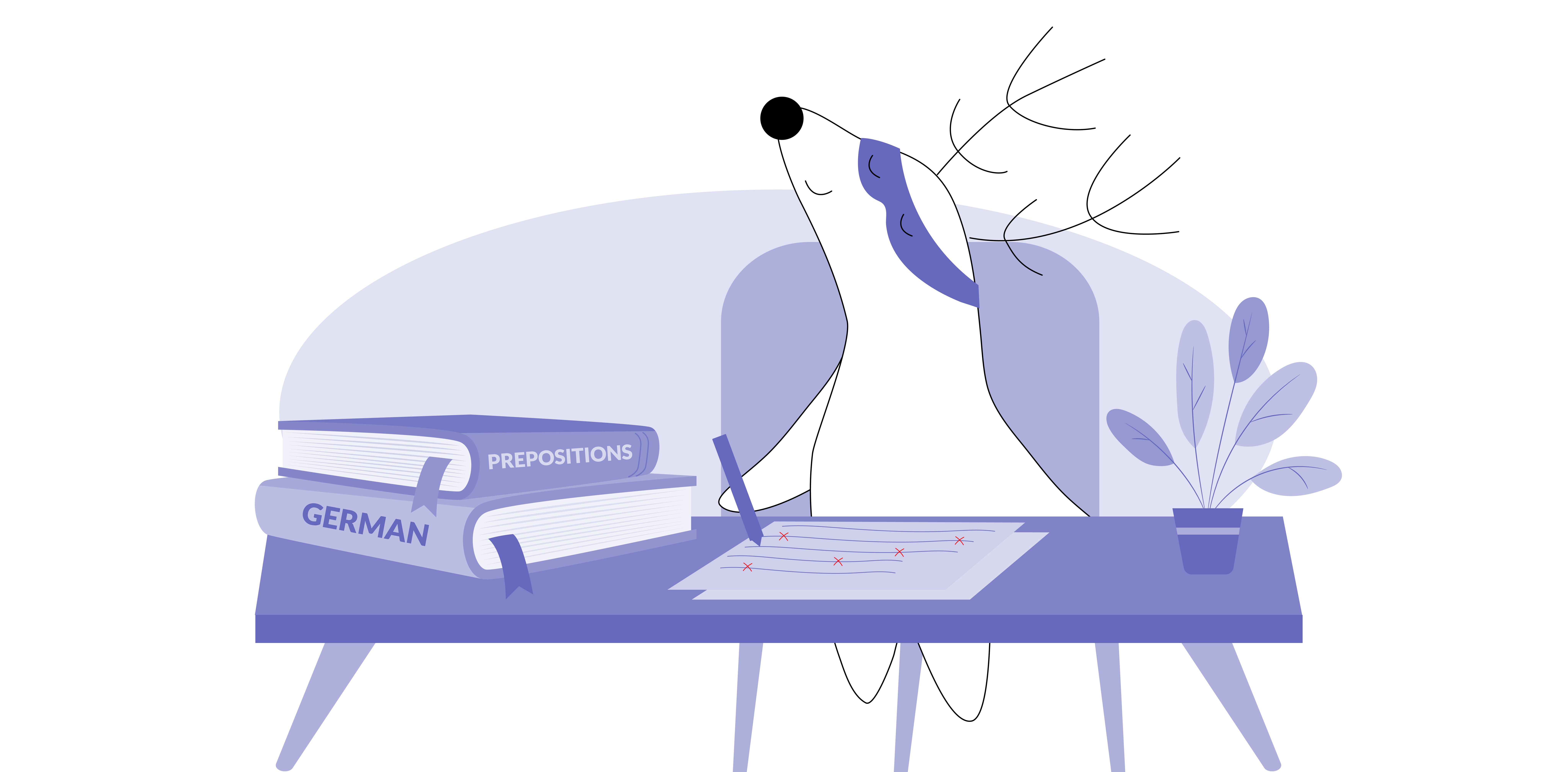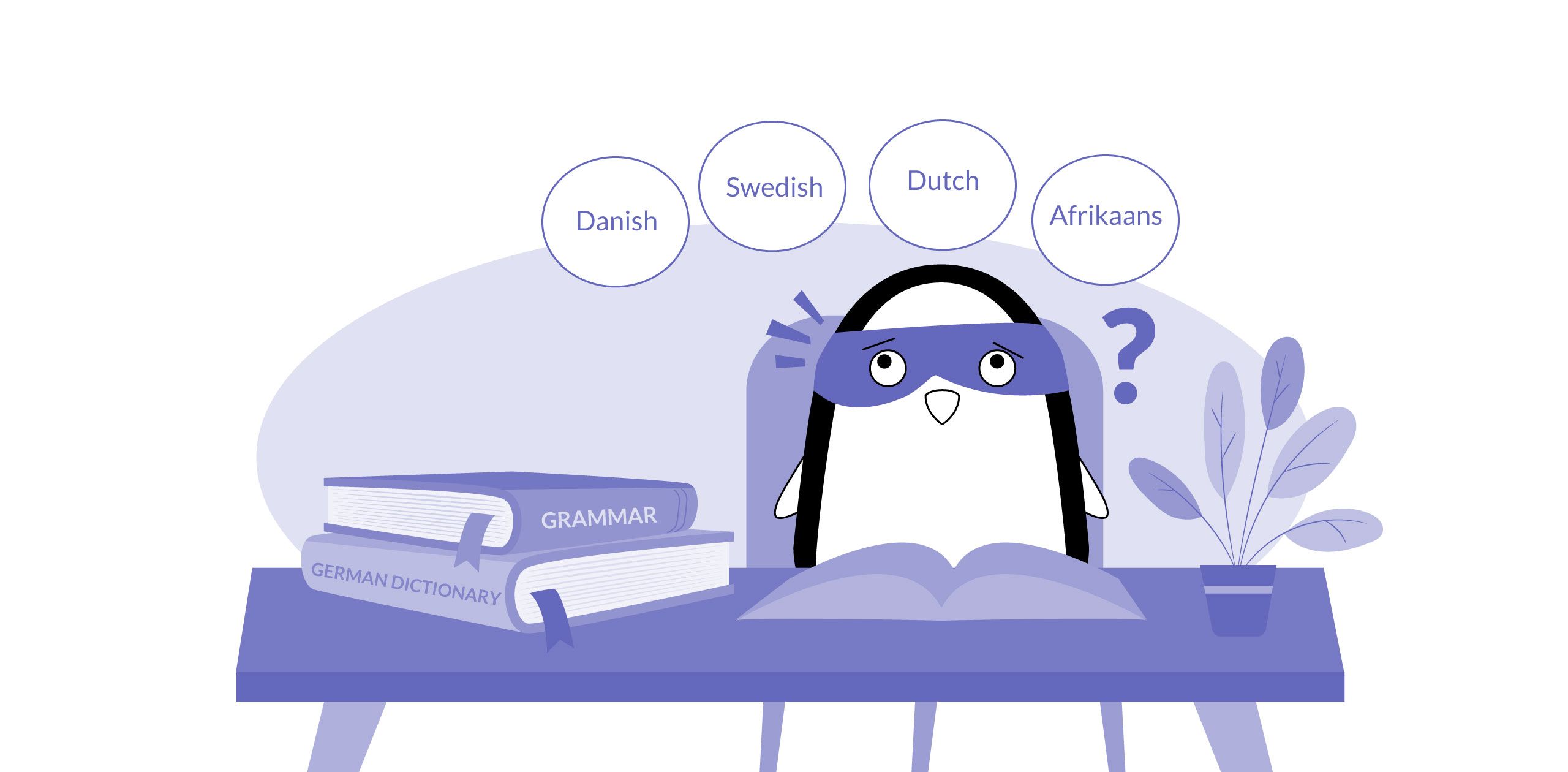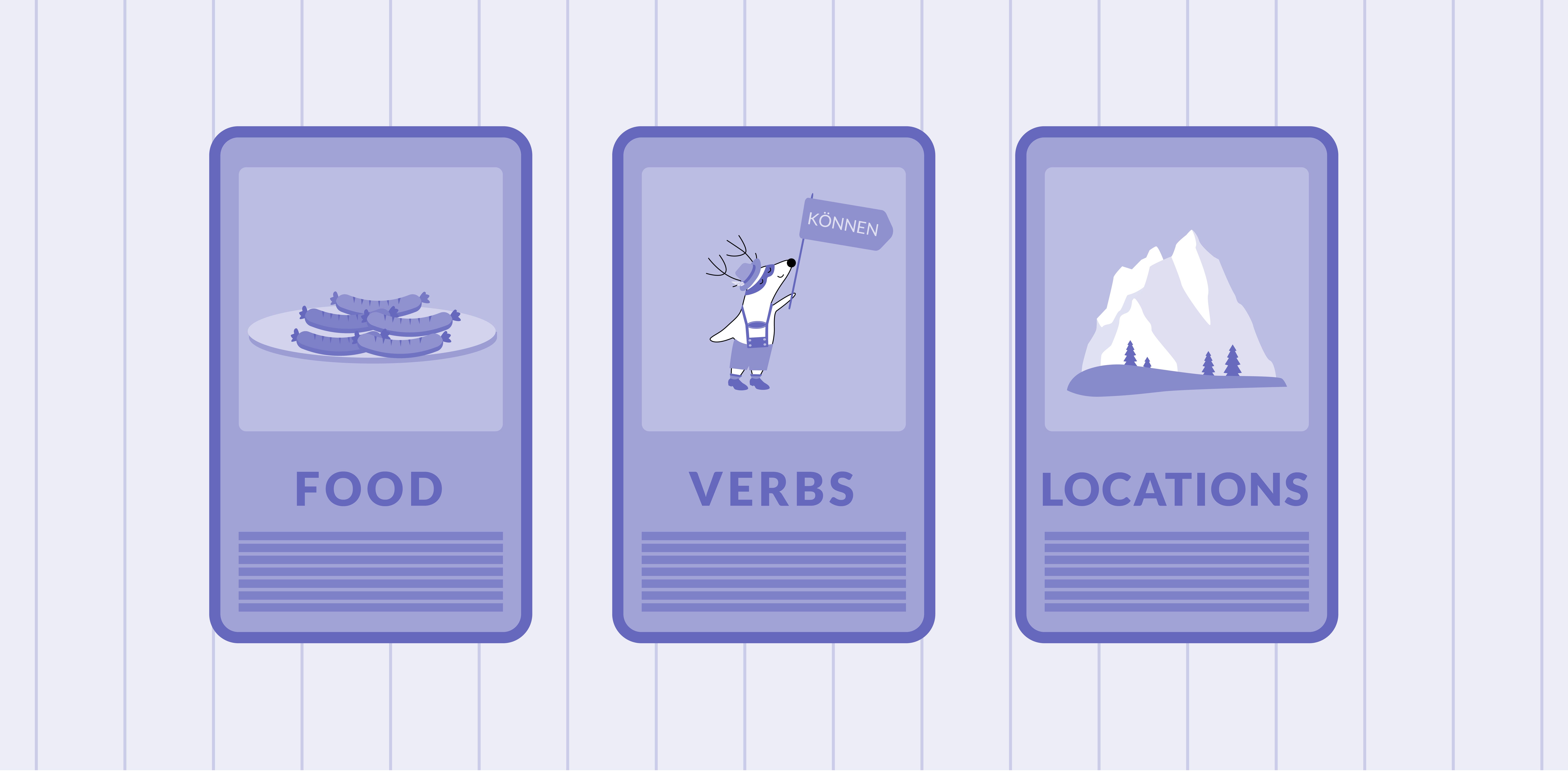
Building up your vocabulary is an important step in learning any new language. After all, even with perfect grammar, you can't say much without knowing what different words mean!
But, the thought of learning German vocabulary without any way to organize the words or knowing where to start can feel overwhelming. That's why we've broken down this list into several categories to help you plan your approach. By learning new words systematically, you'll increase your confidence and soon you'll have more fluent conversations in German!
Let's have a look at some of the most common words you'll hear in the German language. Read on!
Learn German with Readle
The Most Common German Words
Did you know that you only need a vocabulary of about 3,000 words to understand 95% of written texts in a given language? That might seem like a lot, but put another way, that's less than three percent of the total words in most languages.
That means that your language comprehension can increase rapidly just by starting to learn the most commonly used German words. Let's start with just two:
German
English
Ja
Yes
Nein
No
With just these two simple words, you can reply in German to almost any basic question. Though you'll need to know a few others before you can understand questions asked in German, it's a start.
German Question Words
Speaking of questions, knowing the main question words in German will help you be able to gather more information.
And if someone asks you a question that you don't fully understand, knowing what type of question it is will give you some context clues to work from.
German
English
Wer?
Who?
Was?
What?
Warum?
Why?
Woher?
Where?
Wann?
Why?
Wie?
How?
Simple German Greetings and Goodbyes
Even if you can't conduct a conversation in German yet, your German friends will surely appreciate it if you make the effort to greet them and say goodbye in their language, and so will any strangers you may talk to.
German
English
Hallo
Hello
Tschüss
Bye
Auf Wiedersehen
Goodbye
Guten Tag
Good day
Guten Morgen
Good morning
Gute Nacht
Good night
Bis später
See you later
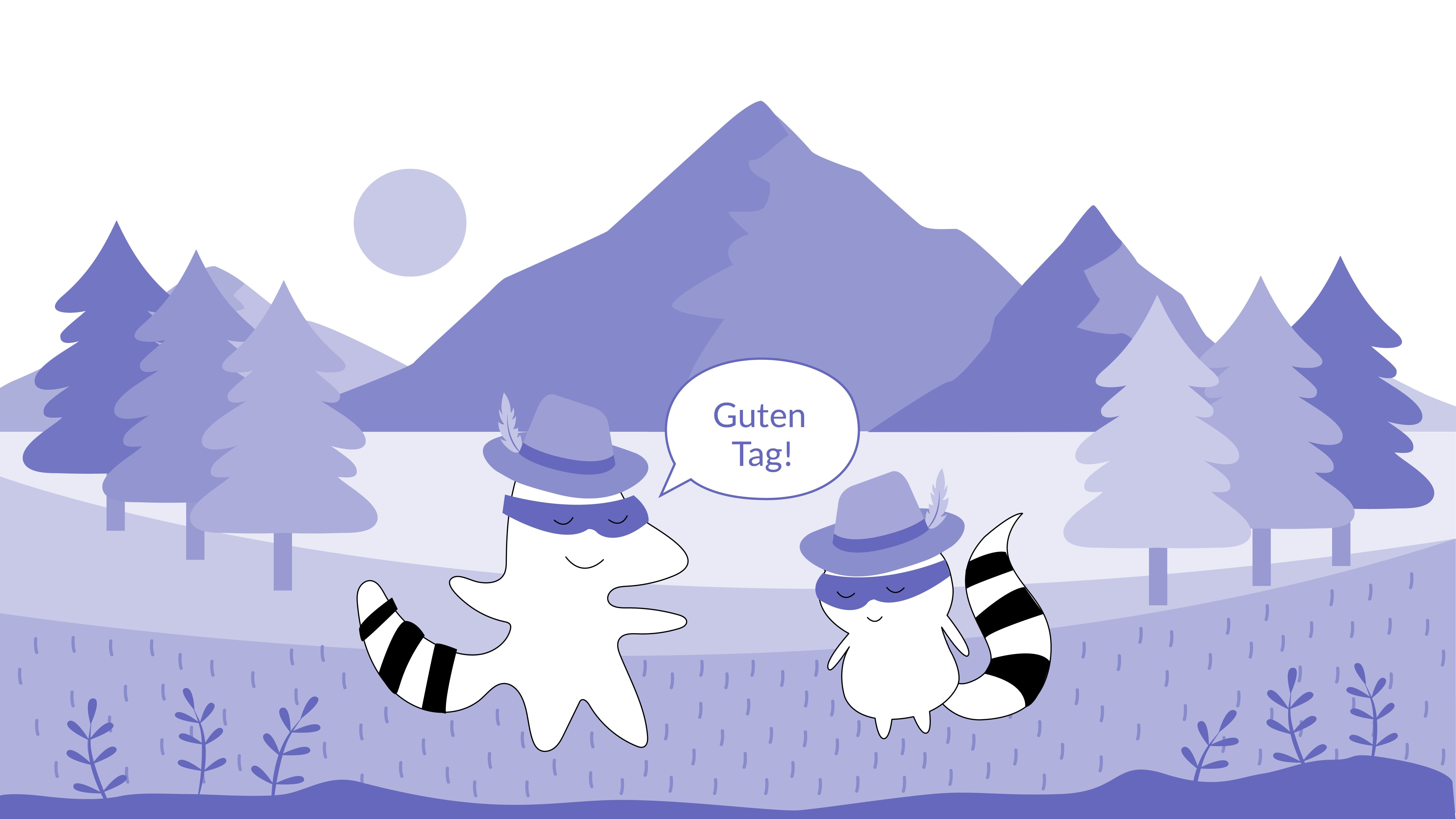
Being Polite in German
Politeness and formality are very important in German culture and, especially as a beginner, are important when asking for help or apologizing for mistakes.
German
English
Bitte
Please
Danke
Thanks
Entschuldigung
Excuse me
Sorry
Sorry
Gesundheit
Bless you
Basic German Words for Time
Let's start with the days of the week.
German
English
Montag
Monday
Dienstag
Tuesday
Mittwoch
Wednesday
Donnerstag
Thursday
Freitag
Friday
Samstag
Saturday
Sonntag
Sunday
Wieviel Uhr ist es?
What time is it?
Uhr
Hour or o'clock
um
at
vor
before
nach
after
viertel
quarter
halb
half
It's important to note that Germany uses 24-hour time rather than AM/PM. However, in spoken language, it is also common to use a 12-hour clock and use the phrases below if the time of day needs to be specified.
German
English
morgens
in the morning
mittags
at noon
nachmittags
in the afternoon
abends
in the evening
nachts
at night
Numbers
Finally, to talk about time, we should know at least German numbers up to 12. Luckily, German numbers don't change form when talking about the hours of the day.
German
English
Null
Zero
Eins
One
Zwei
Two
Drei
Three
Vier
Four
Fünf
Five
Sechs
Six
Sieben
Seven
Acht
Eight
Neun
Nine
Zehn
Ten
Elf
Eleven
Zwölf
Twelve
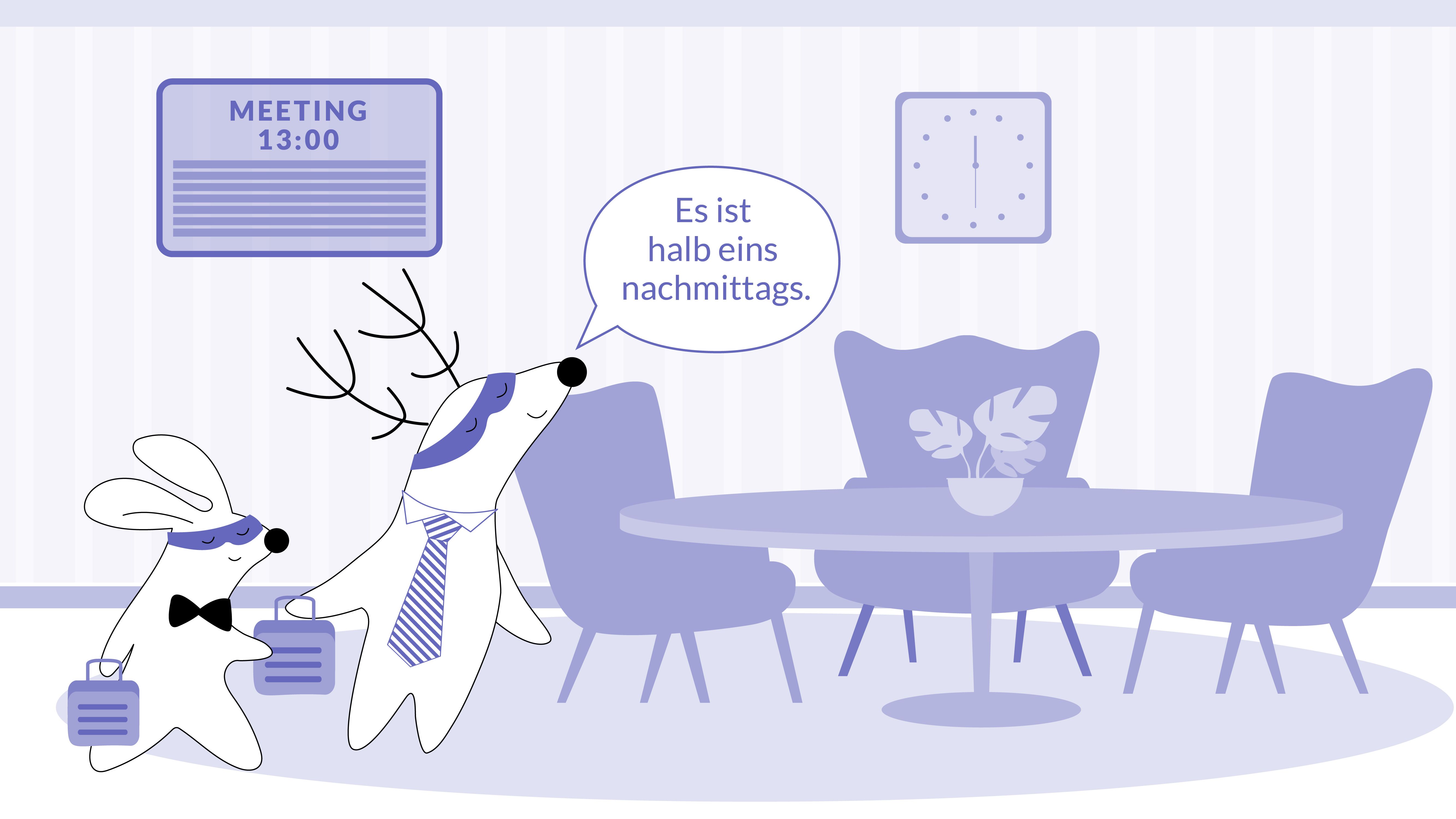
German Pronouns
Even though there are only a few pronouns, they make up a huge part of our daily speech. Think about it -- without pronouns, how would we talk about anyone or anything? We would have to repeat their names constantly. As a beginner, making sure you know the German pronouns can also make up for a lot of gaps in your vocabulary knowledge.
German
English
ich
I
du
you
Sie
You
er
he
sie
she
es
it
wir
we
ihr
you
sie
they
Note that "sie" has a few different meanings -- it is used as the singular feminine, the plural for all genders, and, when capitalized, as both singular and plural formal You. To know which meaning is being used, you might have to look for context clues in the sentence.
Basic German Verbs
Moving on, verbs are a crucial part of any language. These common German words will help you say what you're doing or want to do.
German
English
sein
to be
nehmen
to take
verstehen
to understand
treffen
to meet
einladen
to invite
gehen
to go
kaufen
to buy
essen
to eat
gehen
to walk
sprechen
to say, to tell, to speak
wissen
to know
kommen
to come
besuchen
to visit
wollen
to want
sehen
to see
stehen
to stand
denken
to think
fragen
to ask
Now you know the basic forms of these German words. But, don't forget that you'll have to conjugate them to use them in sentences, and there are many different tenses to learn about, too!
Common German Phrases
Ready to try having some basic conversations in German? With just a handful of new vocabulary phrases, you'll be able to introduce and express yourself.
German
English
Ich heiße...
My name is...
Wie heißt du?
What’s your name?
Wie geht es dir?
How are you?
Mir geht’s gut
I’m doing well
Gut, danke
Fine, thank you
Nett, Sie kennen zu lernen
Nice to meet you
Ich verstehe nicht
I do not understand
Ich vermisse dich
I miss you
Ich liebe dich
I love you
Basic Vocabulary For Travelers
Finally, if you're planning a trip to Germany and worried about how to communicate, never fear! Most Germans speak decent English, but they'll appreciate it if you make the effort to talk to them in their own language.
Here are a few phrases to help you get by when visiting a German-speaking country.
German
English
Können Sie mir helfen?
Can you help me?
Ich habe mich verlaufen
I am lost
Sprechen Sie Englisch?
Do you speak English?
Ich kann kein Deutsch
I can’t speak German
Wie komme ich zum Busbahnhof?
How can I get to the bus station?
Woher kommst du
Where are you from?
Ich komme aus…
I’m from…
Wo ist die Toilette?
Where is the bathroom?
Was kostet das?
How much is this?
Kann ich zahlen, bitte?
Can I have the bill, please?
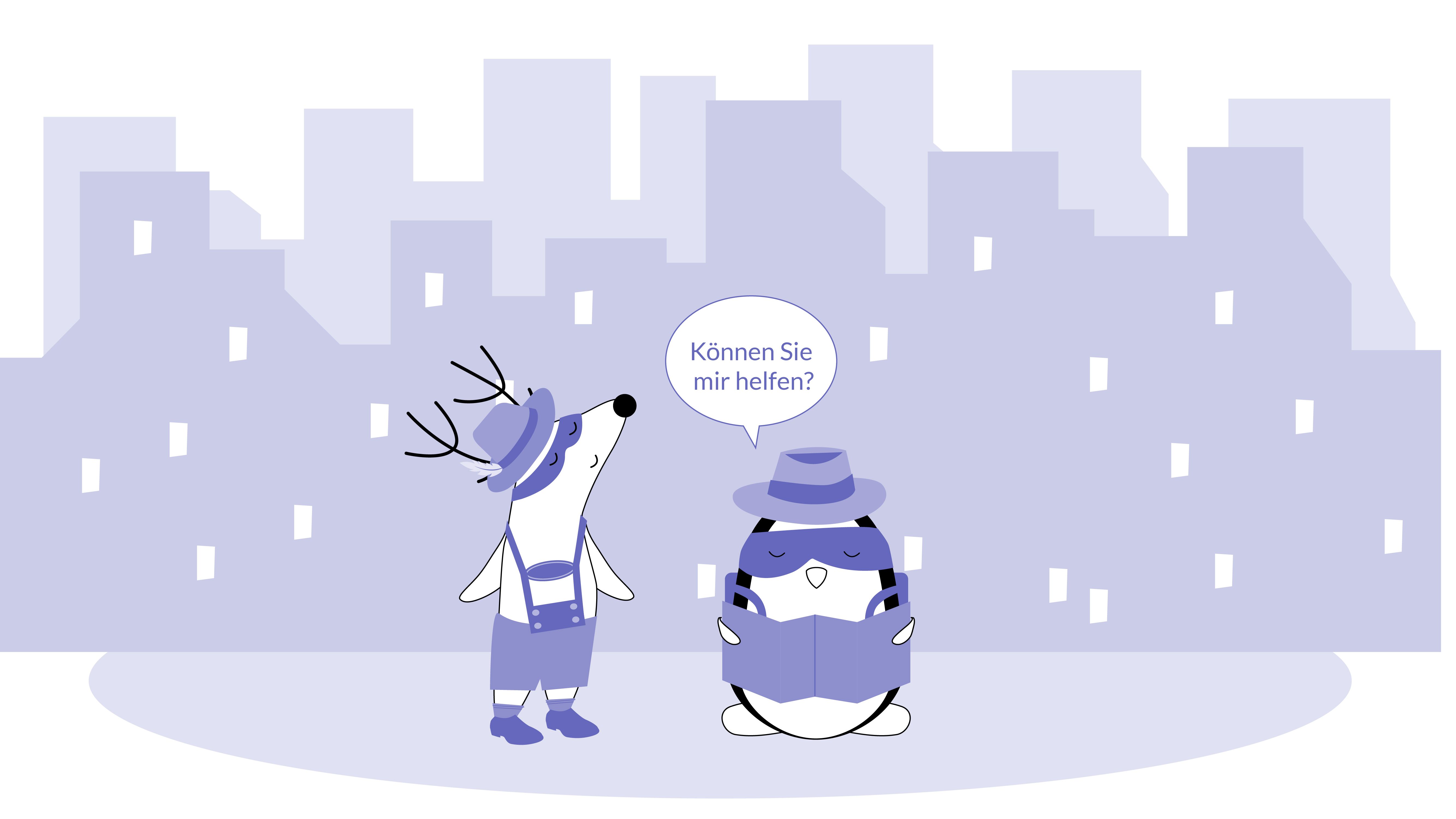
How to Make New German Vocabulary Stick
It takes regular practice to learn German words thoroughly, but you can speed up the process by combining multiple techniques and focusing on just a few terms at a time.
For instance, you could start by studying the words from just one category on this list. Create flashcards or use a flashcard app so you can practice memorizing them on the go, but don't stop there.
Try to use sentences with your target words as much as possible, whether writing or speaking out loud. Using the vocabulary in context will help you not only learn them faster but help you improve your conversational skills as well. You might even end up learning some related vocabulary without realizing it!
The Bottom Line
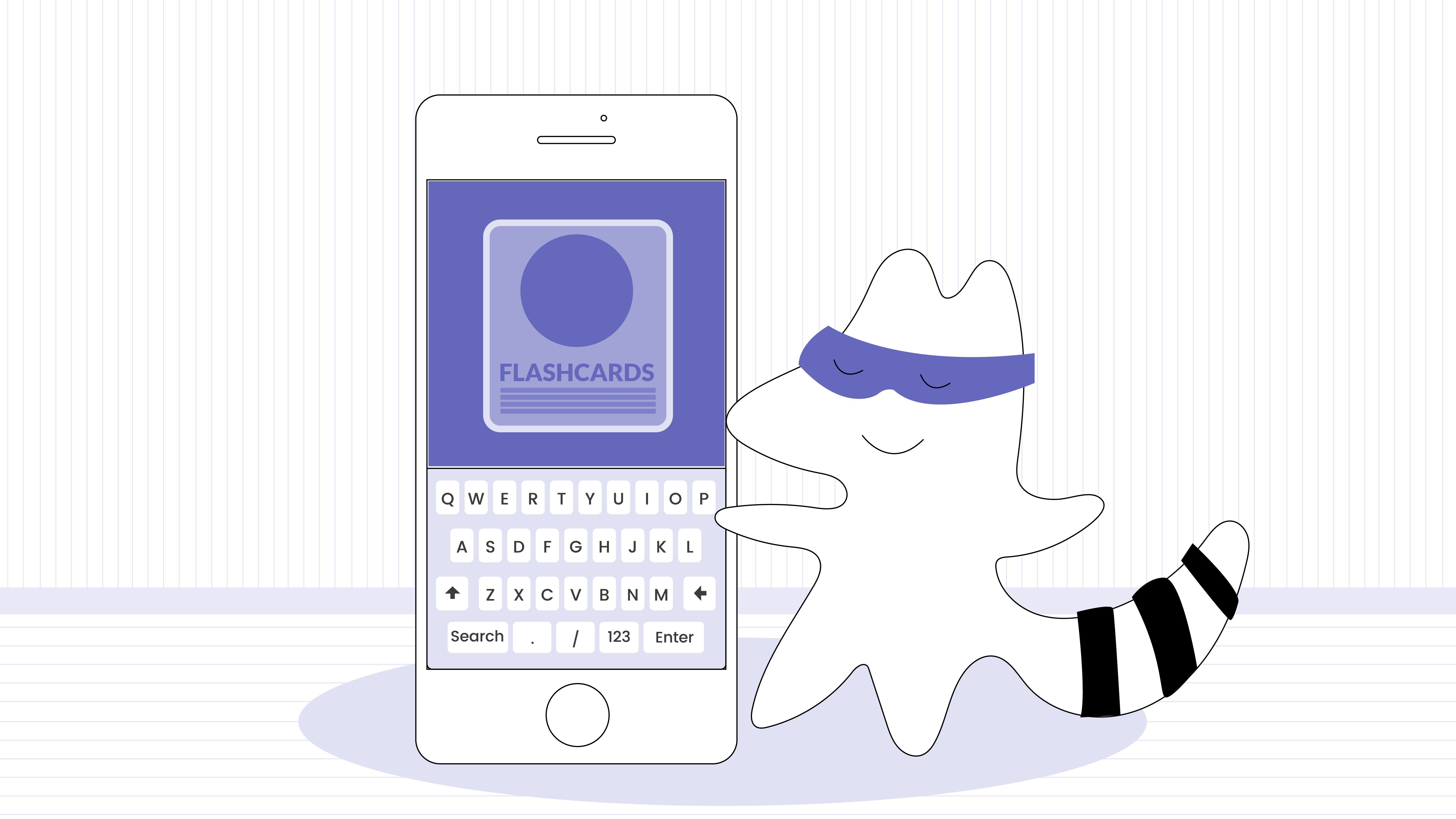
Learning German vocabulary can feel like a daunting task, but you don't have to do it all at once. Focus on one set of words at a time and build up your knowledge gradually.
Remember that using more than one learning method can help you memorize new words faster. So, consider using an app like Langster, where you can learn vocabulary in the context of fun stories and add your target words to flashcards for further practice.
If you're ready to start learning, download the app today!






